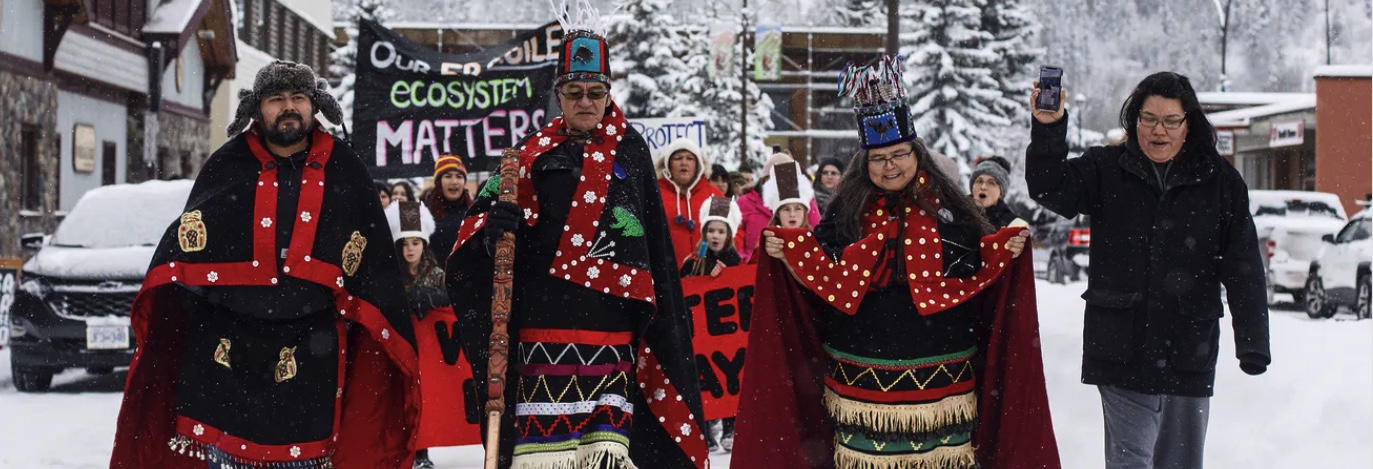
KKR’s Controversial Coastal Gaslink Pipeline Featured in University of Washington Forum
June 7, 2021
Private equity KKR’s investment in the controversial Coastal Gaslink Pipeline was featured in an online forum organized by the University of Washington’s Harry Bridges Center for Labor Studies May 19. Trustees and representatives of dozens of institutional investors with more than $10 trillion in assets combined participated in the forum.
KKR investors are likely aware that among the risks of fossil fuel investments are harm to communities of color and threats to indigenous sovereignty. KKR’s Coastal Gaslink Pipeline construction traverses unceded Wet’suwet’en Territory in British Columbia.
“Our resistance creates huge instability and risk to investors,” said panelist Sleydo’ (Molly Wickham), Gidimt’en Checkpoint Wet’suwet’en spokesperson. “We will never stand down and will continue to resist this project and others like it that do not gain consent from our people. It is a bad investment that will never see the returns that pensioners deserve.”
KKR’s Coastal Gaslink Pipeline is an example from the dozens of fossil fuel investments in KKR’s portfolio. KKR’s energy portfolio has experienced bankruptcies and poor performance, while also posing risks to communities of color.
As it markets two funds – KKR North America XIII and KKR Global Infrastructure Investors – KKR could commit to investors that it will avoid investing in projects that expand fossil fuel capacity in alignment with the recommendations in the International Energy Agency released a roadmap to Net Zero by 2050.
The International Energy Agency (IEA) in May released its roadmap to achieve Net Zero by midcentury, and said, “The pathway to net zero is narrow but still achievable. If we want to reach net zero by 2050 we do not need any more investments in new oil, gas and coal projects.”
Investors with KKR could raise questions with the firm around how it plans to transition its portfolio and how it will account for the risks, emissions and community impacts of its conventional energy holdings.
Private equity firms with extensive fossil fuel holdings like KKR should share how they will dramatically reduce emissions and mitigate community impacts of those investments, while also moving toward an equitable transition to clean energy.
Photo: THE CANADIAN PRESS/Jason Franson
